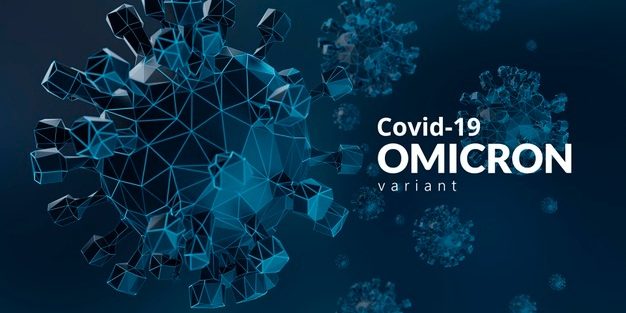Introduction:
Omicron is the mutated strain of the SARS-CoV-2 (COVID-19 virus) reported to have more than 50 mutations, including 32 on its spike protein, and 26 of them have never been seen before. It is a worrying variant because of its mutations and more transmissibility. The mutations on the spike proteins make it tough for the immune system to carry out virus neutralization. This is because spike protein helps the virus bind to a cell, enter it, and then seize it to convert it into a virus-producing factory. It is the part of the virus i.e. targeted by the COVID-19 vaccine to teach the person’s immune system to recognize and attack the coronavirus.
Omicron’s name is designated by the World Health Organisation and is put in the list of ‘variants of concern’ after the other four-alpha, beta, gamma, and delta on 26th November 2021. The first incidence of this virus was in South Africa followed by the U.S. Later this variant has set alarming shock waves across various countries of the globe. So far, it has been spread at an unprecedented rate worldwide. It has been found to spread more than twice quickly as Delta.
Symptoms In Patients Infected By Omicron Variant:
The signs of COVID-19 linked to the omicron variant are described as “extremely mild”. So, most infected patients can be recovered by hospitalizations. However, some symptoms include:
- A scratchy throat
- Cough, congestion, and runny nose
- Extreme tiredness (found in every age group)
At the beginning of the illness, the patient may not able to identify it as being an infection by omicron variant by just looking at the symptoms. Hence, the patient must get tested which may still not confirm the exact strain of COVID-19. Intensive laboratory procedures i.e. genome sequencing are performed by various researchers to figure out the exact virus strain and measures are been taken to develop suitable options to tackle it.
What are the recommended actions for people?
Meanwhile, the researchers are studying the full behavior of the omicron variant and what it means for public health, every individual must take certain measures to prevent the spread of the Omicron variant infection.
This includes maintaining a physical distance of at least 1-2 meter from others; avoiding crowded spaces or poorly ventilated rooms; wearing a well-fitted face mask; keeping hands clean; sneezing or coughing in the bent elbow or disposable tissues; getting vaccinated for COVID-19. Moreover, if you suspect yourself being infected, get tested for it, be quarantined, and avoid traveling.
Trivitron Healthcare Contribution In the Detection Of Omicron Variant
COVID-19 Rapid Antigen Test Kit and COVID-19 RT- PCR Test Kits, which are highly sensitive & specific and are effective in detecting new strains are manufactured by Trivitron Healthcare. Wide range of literature and in-silico analysis suggests these kits can detect conserved regions of the coronavirus RNA and can detect a varied range of COVID-19 infection variants like Omicron, Beta, Zeta, Epsilon, Delta, Kappa, Gamma, Lambda, and many more.
Trivitron COVIDSure and COVIDSure PRO RT-PCR Kits detect the conserved region of SARS-CoV-2 and ORF1ab, Envelope E-gene, and Nucleocapsid N-gene. Mutation in S gene associated with Omicron and other variants remains un-affected by this multiplex RT-PCR test. These kits can detect SARS-COV-2 variants including Omicron.
Trivitron BIOCARD Pro COVID-19 Rapid Antigen Kit is an immunochromatography based test that offers qualitative detection of specific antigens to COVID-19 present in the human nasopharyngeal swab. This antigen test kit detects the conserved region of SARS-CoV-2 that remains unaffected by the mutation in the S gene, hence can detect the Omicron variant of Coronavirus.
This new strain is potentially more contagious than previous variants and has thrown a big spotlight over the world. Trivitron’s top priority remains to make tests accessible, quick, effective and available to those who need them most.

